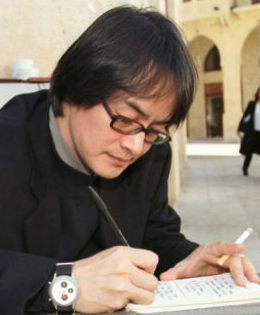 |
Ghost winds swept the Lebanese border city, emptied of living souls. The only things moving through its streets were refugees’ vehicles, taking side roads in order to bypass the No. 1 expressway, which had been bombed by the Israeli army. Using the expressway, it usually takes only an hour to get to Beirut. As soon as the war began, Israeli troops bombed the road - which refugees or vehicles transporting emergency relief goods should have access to - saying that they were trying to eradicate ’terrorists.’ Instead of the expressway, I took a long bypass known among refugees to be a safer route. But on the way, I could see relief trucks and passenger cars overturned, hit by Israeli air strikes. There was nowhere safe in Lebanon. I ran for over two hours, looking up at the sky, the streets of Beirut under my feet. Two areas of the city were in flames and the city itself seemed to shudder in fear. Night fell in Beirut. The Israeli army dropped bombs onto a Muslim area in the southern part of the city that night. Lebanese ambulances rushed to help victims, some of whom no doubt vividly remember their city’s suffering under the same army 24 years ago. When I was there, Beirut was dying. Even as I write this article, the city shakes beneath me with the shock of explosions. "A raid with the will of withdrawal is not an invasion!" As the ultra-rightist Israeli newspaper Yedioth Ahronoth reported this about the Israeli invasion of Beirut on July 7 in 1982, today, the Arutz Sheva newspaper, also ultra hard-line, supported the escalation of war, saying that Israelis should rule the entire land of Jews, saying that this recent fighting could be the opportunity to do so. Beirut, which is trembling with fear, continues to ask the question, "Where are the ’terrorists?’ "






